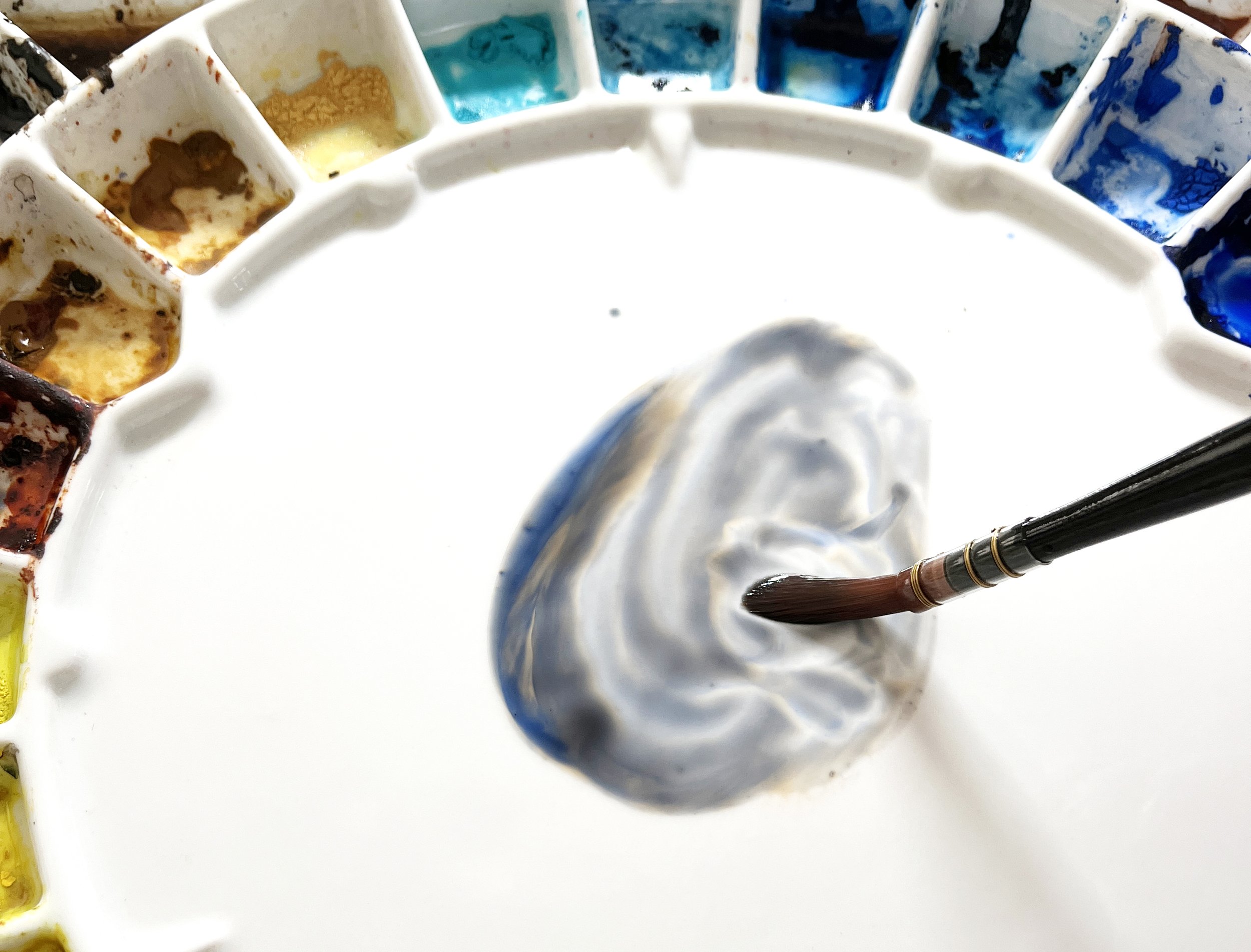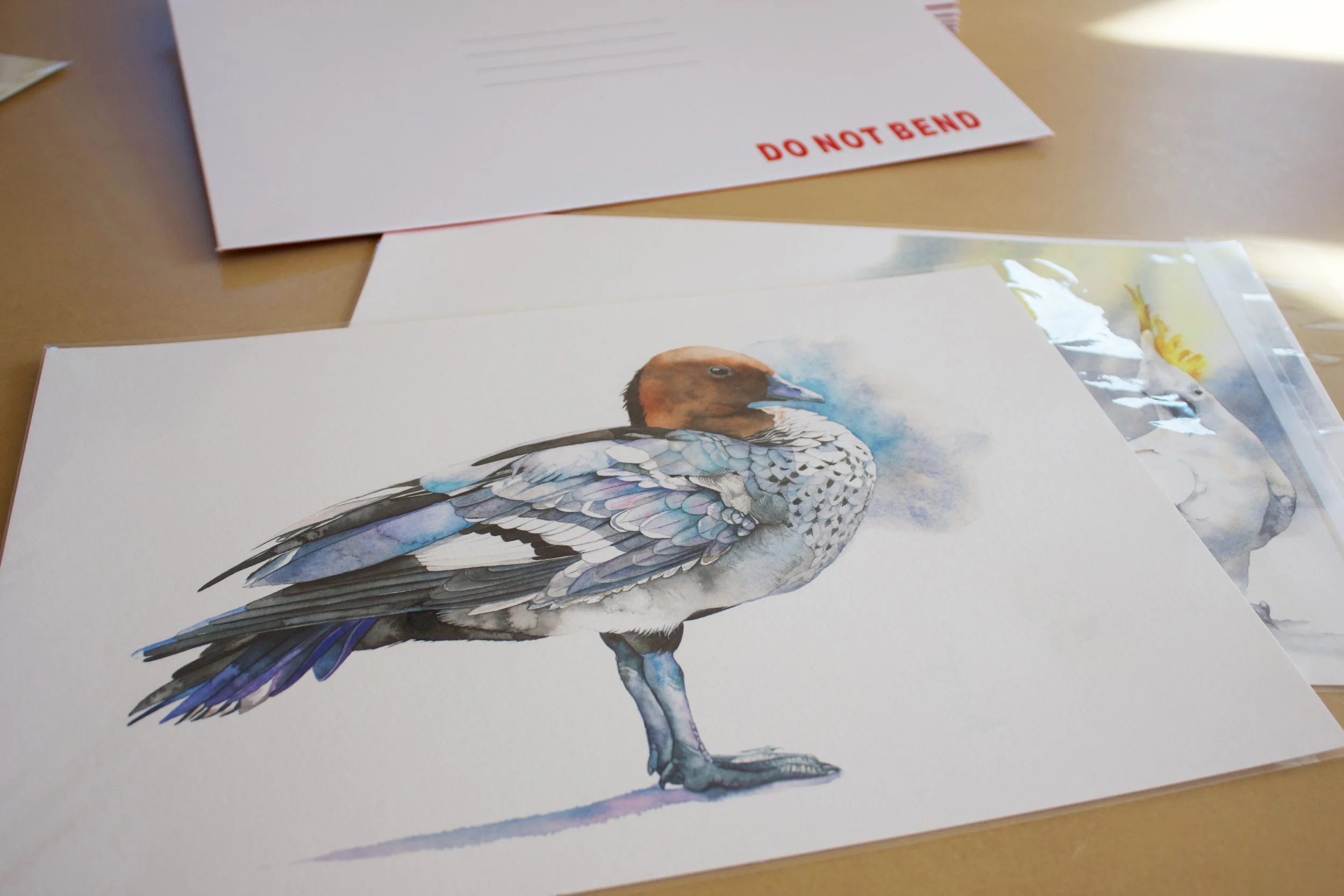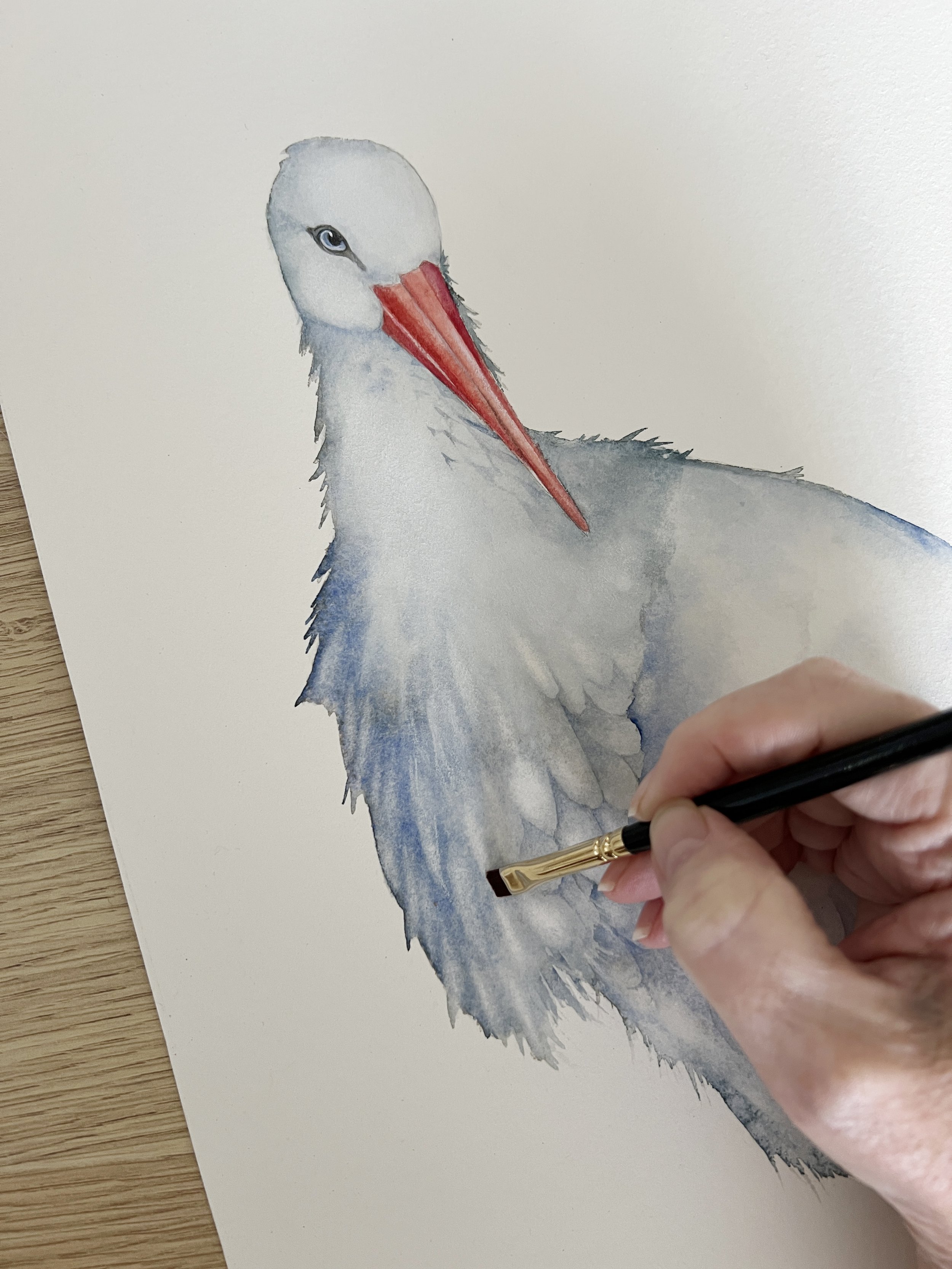Many beginners fall into the trap of overthinking their paintings. Instead of letting go of the outcome and allowing themselves to be creative and have fun, they become tense and try to analyse every detail. This overuse of the left analytical brain can stifle creativity, overshadowing the intuitive and spontaneous process that is essential in watercolour painting. Finding a balance between analytical thinking and creative expression is key to enjoying the artistic journey and achieving satisfying results.
Read MoreThis still life watercolour painting holds a special place in my heart because it reminds me of my nanna. She used to gather fallen camellias from her garden and place them in a beautiful glass bowl filled with water, letting them float gracefully in the centre of the table.
I have a camellia tree, and as I was taking photos of the blossoms to use as painting references, one of them fell to the ground. This instantly brought back memories of what my nanna used to do, inspiring me to create this painting.
Read MoreUnderstanding the temperature of the colour grey is crucial in painting as it directly influences the mood, atmosphere, and overall aesthetic of the artwork.
The temperature of greys can evoke specific emotions and set the tone of the painting. Warm greys, with hints of red, orange, or yellow, often create a sense of warmth, intimacy, and comfort. They can be used to convey feelings of coziness or nostalgia, making them ideal for depicting sunny interiors, cozy firesides, or intimate gatherings.
Read MoreWhen you ship artwork, opt for reputable shipping services that offer tracking and insurance. Shipping companies specialising in artwork handling are ideal. Tracking ensures you can monitor the shipment, and insurance provides peace of mind in case of any unforeseen issues. Use consolidated freight for efficient shipping. Consolidated freight shipping services are always provided by licensed and insured shipping companies.
Read MoreIn the world of watercolour painting, the choice of pigments can significantly impact the final artwork. Daniel Smith paints, known for their Extra Fine Watercolours and Watercolour & Gouache products, offer a wide range of high-quality pigments. One of my old favourites is Daniel Smith’s Rose of Ultramarine, a unique blend that has brought my rose painting to life. In this post, I’ll share insights about this exquisite colour, its composition, and why it can be advantageous for artists to use premixed colours like this one.
Read MoreAquabord is a unique painting surface created by Ampersand Art Supply, designed specifically for watercolour and other water-based media. Aquabord is available in various options, including flat panels and cradle profiles. The texture of Aquabord is similar to cold-pressed watercolour paper, allowing colours to retain their purity and vibrancy. Unlike traditional watercolour paper, Aquabord is made from a rigid, absorbent clay surface that is applied to a hardboard panel.
Read MoreWhen your paint no longer offers the sheen of freshness, it's time to step back and let the canvas breathe. Embrace this moment of stillness, allowing the paint to dry completely before introducing more pigment. This necessitates a swifter approach to your strokes - often a leap for watercolour beginners, who tend to meticulously shape their washes, giving time for the edges to start setting.
Read MoreFor a smooth application of glitter watercolours, soft natural bristle brushes are ideal. They are gentle enough to pick up the fine particles without causing dispersion that might reduce the sparkle effect. Glitter can be a bit tougher to wash out so I would advise against using your best kolinsky sable brushes.
Read MoreI love painting birds, and it's a lot of fun for me, but it wasn't working at the beginning. Even though I worked off reference photos, I needed a better understanding of what I wanted to achieve. The first painting did not turn out as planned, prompting me to start over, not once but multiple times. I had to develop new ideas and spend time practicing creating a beautiful artwork.
Read MoreThere are two effective methods to achieve soft edges in watercolour painting. The first is the wet-on-wet technique, where you are applying paint to wet paper. This method allows the paint to spread across the moist surface, naturally creating a soft edge as it disperses. You can apply this technique to paper that's visibly wet and shiny or to paper that's merely damp, after the initial sheen has faded.
Read MoreMany beginners find colour wheels confusing and not very intuitive. Instead, I recommend a more straightforward approach and easy trick: utilising the online resources of reputable paint manufacturers like Winsor and Newton, Daniel Smith, or Schmincke. These companies organise their colours not just by hue but by temperature, which can be immensely helpful.
Read MoreUnderstanding why some pigments stain while others do not can feel a bit like unlocking a secret garden - once inside, everything seems vivid and clear. The behaviour of watercolour pigments, whether they are likely to stain or not, is deeply rooted in the characteristics of the pigments used in their creation. This variance can dramatically affect both the technique and final appearance of a watercolour piece.
Read MoreColour value, in its essence, refers to the lightness or darkness of a colour. In watercolour painting, where the medium's transparency plays a crucial role, value becomes a powerful tool. It's not just about choosing the right colours but understanding their inherent lightness or darkness and how they interact on paper. This interaction is what ultimately shapes the mood, depth, and realism of our work.
Read MoreFor ten years, acrylic painting was a source of immense joy and became a core part of my identity. Then, unexpectedly, my passion for it disappeared, leaving me disoriented and somewhat incomplete. This loss was so profound that I set aside my brushes for several years, opting instead to attend university and train as a school teacher. Despite this new path, the deep-seated yearning for artistic expression remained, casting a shadow of sadness over me.
Read MoreOnce our paintings are complete, we might refine the presentation by carefully trimming the edges, ensuring each stroke and splash is framed perfectly, enhancing the artwork’s visual appeal. Additionally, when our pieces are mounted for painting or display, cutting becomes essential to gently free them from their boards.
This meticulous attention to detail in paper cutting ensures our watercolour artworks are showcased with precision, embodying the true essence of our artistic intent.
Read MoreIn my studio, surrounded by brushes, pigments, painting materials and light that inspires my work, the choice of paper is paramount. The watercolour paper surface and the used sizing will greatly affect the outcome. I've found that artist-quality papers, like Arches, offer a balance that complements the lifting technique beautifully.
Read MoreThe way you organise your workspace can significantly impact your artistic flow, much like a well-prepared table sets the scene for a meal. Imagine your workspace as a canvas, where each element — from palettes to brushes, from water jars to the paper itself — is positioned not merely by necessity, but with an intuitive grace.
Read MoreIn the realm of watercolour, the alchemy between artist and artist's supplies transcends the physical; it becomes a dialogue, a shared journey towards creation. Each tool and medium in my studio has been chosen not just for its quality, but for the unique voice it brings to this conversation. Let me share with you the essence of these relationships, the soul behind each choice, and the indispensable role these art supplies play in my art.
Read More
















